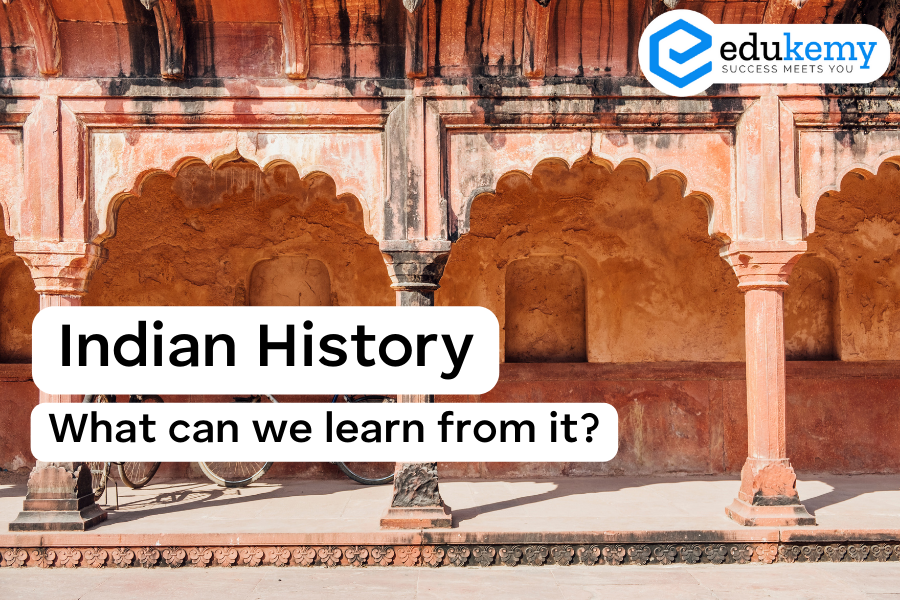Indian History is often seen as a subject followed by certain education streams & for career choices like that in Museum, Writing, Historian, etc. Seldom do we think of it as a complement to the STEM subjects like Maths & Science.
Tragedy is, that even the School textbooks provide knowledge like invading armies & British subjugation in India.
But the real purpose of History is, to simplify and understand historical facts & relate them with present identity of society, individuals, & nations.
Contents
Learning about Self-Sufficiency from Indian History
For instance, while we know about renowned universities like Nalanda & Taxila, do we also know that more of the small villages in India back then had their own schools? Isn’t it astonishing to think about?
These universities were not run by the patronage of kings – rather run by the village themselves!
The model of “self-sufficient” villages created wealth & boosted trade.
These lessons from History are like pearls of wisdom – they help us plan for the future.
Learning about Democracy from Indian History
We have been taught in our History textbooks how Athens in Greece was the cradle of modern democracy – which was later adopted by the US, and subsequently by India in the 1950s.
We also know for a fact that many Buddhist Pali Canon contain details that clans use to make public decisions in parliaments. Thus, it seems that the Indian subcontinent already followed a Parliamentary System of Governance, which was inclusive unlike the “oligarchical system” followed in Greece.
Not only this, the Indian subcontinent also provided refuge to persecuted Jews & Zoroastrian communities. They were offered land, with the freedom to practice their own beliefs. In fact, Zoroastrians went on to contribute to the modern glory of India – with industrialists like Jamshedji Tata.
While India continues to prosper, can we gain inspiration from the education models followed in the “Gurukal Systems” of the past?
Learning about Different perspectives from Indian History
Students were involved in self-learning, life skills, discipline, intellectual development, & mindfulness.
Ancient Indian Philosophies, like the Vedanta, Ajivika, and Charvaka help us see the world in a different light.
Similarly, we also talk about the different economic models from Ancient Indian History. While the Chankaya Model talked about less government interference with the state controlling the law & tax system, the Ashokan Model talks about a Socialist model – controlled industries, as well as religious practices to maintain societal harmony.
You see – there are a lot of things to learn from Indian History. We get new insights on how to build a society rooted in empathy, humility, and open-mindedness. It also tells us to have diverse perspectives, a pluralistic mindset, and tolerance in society.
More than knowing what history tells us, we need to build innovative ways of learning from history. Looking into the present & future with historical lenses can help open doors to a more integrated new world.
History is fun to read – and even fun if you are preparing for the UPSC Civil Services Exam!

We are starting with our GS Integrated Course with History from 28th March.
You can enquire about the course here!
You can also call us on 9773890610
Join our Telegram Group for more such content!

